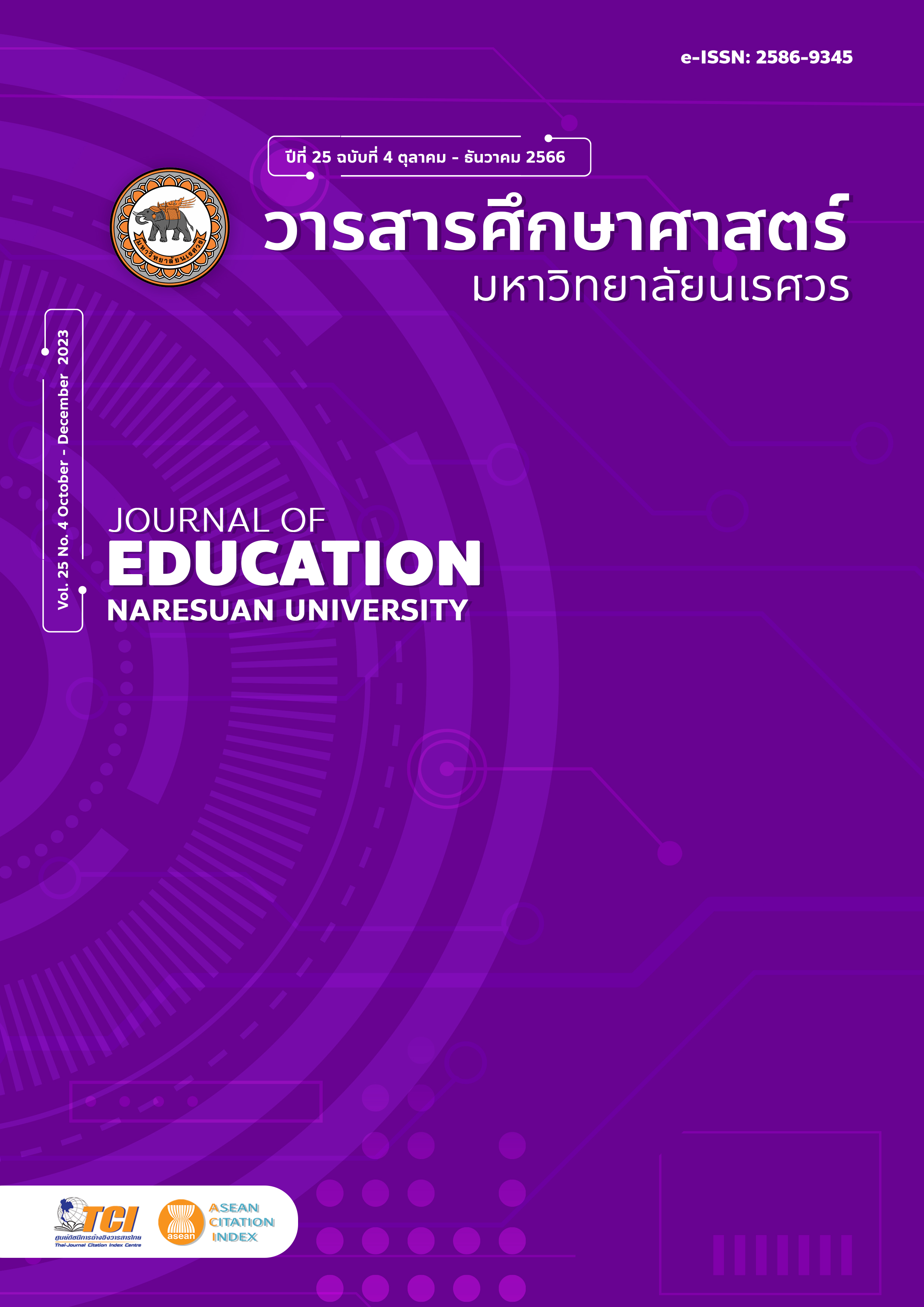SCHOOL – COMMUNITY PARTNERSHIP IN THE PHILIPPINES: THE CASE OF BEST IMPLEMENTORS
Main Article Content
Abstract
Brigada Eskwela (BE) or School Brigade is a weeklong community service in which the stakeholders’ participation are the highlights. The program brings together teachers, parents, and community members to work together in preparation for the school opening. This study aims on determining the best practices of the best implementer schools in the implementation of the BE Program under the umbrella of the Adopt-A-School Program of the Philippine Department of Education. The experiences of the school principals and the coordinators are also identified. The triangulation method was used to collect the data, and six (6) principals and six (6) teacher-coordinators were purposefully chosen to participate in the qualitative interview. Moreover, six (6) stakeholders have also joined in the focus group discussion. Findings in the study showed that the best implementing schools can be described in terms of improved facilities, awards received and generated resources. Also, their practices vary from different areas of the BE program which have emerged as the contributing factors in recognizing them as best implementers. Challenges were unavoidable in the implementation of the BE program. Best-practice schools have faced challenges such as time constraints, a lack of resources, and a lack of stakeholder involvement.
Article Details

This work is licensed under a Creative Commons Attribution-NonCommercial-NoDerivatives 4.0 International License.
The owner of the article does not copy or violate any of its copyright. If any copyright infringement occurs or prosecution, in any case, the Editorial Board is not involved in all the rights to the owner of the article to be performed.
References
Alave, J., & Ancho, I. (2020). Outsourcing funds for the preparation of school opening: The experiences and best practices of rural public schools. Journal Of Community Development Research (Humanities and Social Sciences), 13(1), 19-27. DOI: 10.14456/jcdr-hs.2020.2
Baxter, P., & Jack, S. (2008). Qualitative case study methodology: Study design and implementation for novice researchers. The Qualitative Report, 13(4), 544-559. https://nsuworks.nova.edu/tqr/vol13/iss4/2
Brewis, G. (2010). From service to action? Students, volunteering and community action in Mid Twentieth-Century Britain. British Journal of Educational Studies, 58(4), 439-449.
Cilliers, E. J. (2021). Reflecting on social learning tools to enhance the teaching-learning experience of generation Z learners. Frontiers in Education, 5, 286. DOI: 10.3389/feduc.2020.606533
Craig, C., Brooks, M., & Bichard, S. (2021) Prosocial consumer socialization: how socialization agents impact prosocial attitudes and behavior. Atlantic Journal of Communication, 29(3), 136-150. DOI: 10.1080/15456870.2020.1751627
Crowe, S., Cresswell, K., Robertson, A., Huby, G., Avery, A., & Sheikh, A. (2011). The case study approach. BMC medical research methodology, 11, 100. https://doi.org/10.1186/1471-2288-11-100
Debout, C. (2016). L'étude de cas qualitative [Qualitative case study]. La revue de Reference Infirmiere, 806, 57–60. https://doi.org/10.1016/j.soin.2016.04.018
Department of Education. (2008). Brigada Eskwela Manual for School Heads. Retrieved from http://depedzn.net/files/downloads/Brigada-Eskwela-Manual.pdf
DepEd Order No. 35, s. 2017. Revised guidelines on the implementation of the basic educational facilities fund. Retrieved from https://www.deped.gov.ph/2017/07/17/do-35-s-2017-revised-guidelines-on-the-implementation-of-the-basic-educational-facilities-¬fund
Dutta, M. (2004). Describing volunteerism: The theory of unified responsibility. Journal of Public Relations Research, 16, 353-369. DOI: 10.1207/s1532754xjprr1604_2
Ghiasvand, A., Naderi, M., Tafreshi, M., Ahmadi, F., & Hosseini, M. (2017). Relationship between time management skills and anxiety and academic motivation of nursing students in Tehran. Electronic Physician, 9(1), 3678–3684. https://doi.org/10.19082/3678
Gregory, A., Atkins, J., Midgley, G., & Hodgson, A. (2020). Stakeholder identification and engagement in problem structuring interventions. European Journal of Operation Research, 283(1), 321-340. https://doi.org/10.1016/j.ejor.2019.10.044
Groffmann, K., Kroh-Püschel, E., & Wender, I. (2019). Chapter 7. a study of social information processing: Some experiments on imitation: In M. Irle & L. Katz (Ed.), Studies in Decision Making: Social Psychological and Socio-Economic Analyses (pp. 195-234). Berlin, Boston: De Gruyter.
Horsburgh, J., & Ippolito, K. (2018). A skill to be worked at: using social learning theory to explore the process of learning from role models in clinical settings. BMC Med Educ, 18, 156. https://doi.org/10.1186/s12909-018-1251-x
Jahangirian, M., Borsci, S., Shah, S. G. S., & Taylor, S. J. E. (2015). Causal factors of low stakeholder engagement: A survey of expert opinions in the context of healthcare simulation projects. Simulation, 91(6), 511–526. https://doi.org/10.1177/0037549715583150
Lower, L., & Czekanski, W. (2019) Effective management of scarce resources: A case study of American collegiate sport clubs. Managing Sport and Leisure, 24(1-3), 119-140. DOI: 10.1080/23750472.2019.1591295
McDougle, L., Handy, F., Konrath, S., & Walk, M. (2014). Health outcomes and volunteering: The moderating role of religiosity. Soc Indic Res, 117, 337–351. DOI: 10.1007/s11205-013-0336-5.
Park, S., & Shin, J. (2017). The influence of anonymous peers on prosocial behavior. PloS One, 12(10), e0185521. Doi: 10.1371/journal.pone.0185521
Parker, S., & Jorritsma, K. (2021). Good work design for all: Multiple pathways to making a difference. European Journal of Work and Organizational Psychology, 30(3), 456-468.
Stukas, A., Snyder, M., & Clary, E. (2016). Understanding and encouraging volunteerism and community involvement. The Journal of Social Psychology, 156, 243-255. DOI: 10.1080/00224545.2016.1153328
Thizy, D., Emerson, C., Gibbs, J., Hartley, S., Kapiriri, L., Lavery, J., …, & Robinson, B. (2019). Guidance on stakeholder engagement practices to inform the development of area-wide vector control methods. PLoS Negl Trop Dis, 13(4). https://doi.org/10.1371/journal.pntd.0007286
Usman, Y. (2016). Educational resources: An integral component for effective school administration in Nigeria. Research on Humanities and Social Sciences, 6(13). https://files.eric.ed.gov/fulltext/ED578024.pdf
Vinton, L. (2012). Professional administration of volunteer programs now more than ever: A case example. Administration in Social Work, 36(2), 133–148.
Wilson, J. (2012). Volunteerism research: A review essay. Nonprofit and Voluntary Sector Quarterly, 41, 176–212.
Wu, D., & Passerini, K. (2013). Uncovering knowledge‐based time management practices: implications for project management. International Journal of Managing Projects in Business, 6(2), 332-348. https://doi.org/10.1108/17538371311319052
Yeung, J., Zhang, Z., & Kim, T. Y. (2017). Volunteering and health benefits in general adults: cumulative effects and forms. BMC Public Health, 18(1), 8. https://doi.org/10.1186/s12889-017-4561-8


